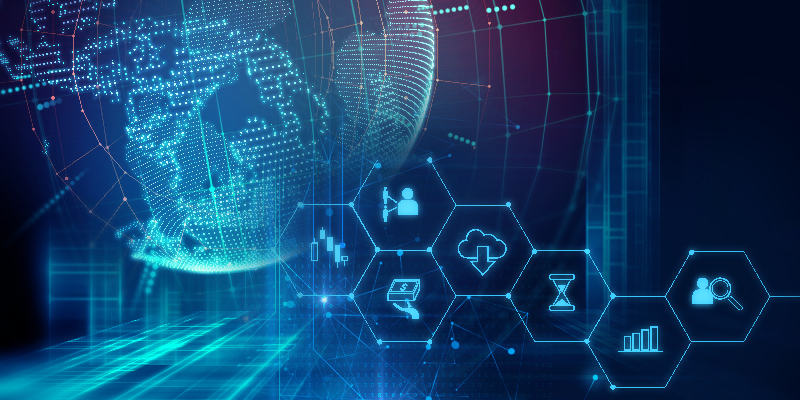Biotechnology Innovations That Are Changing Lives

In the modern era of scientific renaissance, biotechnology innovations are redefining the boundaries of possibility. These advancements are not confined to laboratories or academic journals—they are permeating everyday life, revolutionizing how we heal, grow, and sustain. From gene editing to biofabrication, biotechnology innovations are catalyzing a transformation that touches every corner of society, offering solutions to age-old challenges and unlocking new realms of potential.
Precision Medicine and Genomic Tailoring
The age of one-size-fits-all healthcare is waning. Precision medicine, powered by genomic analysis, enables treatments tailored to an individual’s genetic blueprint. By decoding DNA sequences, clinicians can predict susceptibility to diseases, customize drug regimens, and even preempt adverse reactions.
This personalized approach enhances efficacy and minimizes risk. In oncology, for instance, targeted therapies now attack specific mutations rather than generalized tumor cells. The result is a paradigm shift—from reactive treatment to proactive prevention.
Agricultural Bioengineering and Food Security
Feeding a growing global population demands innovation beyond traditional farming. Genetically engineered crops now exhibit resistance to pests, drought, and disease, reducing reliance on chemical inputs and increasing yield. These enhancements are not merely technical—they are existential, ensuring food availability in regions plagued by climate volatility.
Beyond crops, synthetic biology is being applied to livestock and aquaculture, improving nutritional profiles and disease resistance. Vertical farming, powered by bio-optimized plants, is redefining urban agriculture, bringing fresh produce closer to consumers while conserving land and water.
Regenerative Medicine and Tissue Engineering
The frontier of healing lies in regeneration. Scientists are now cultivating tissues and organs in controlled environments, using scaffolds seeded with stem cells. These bioengineered constructs mimic natural anatomy and function, offering hope to patients awaiting transplants or recovering from trauma.
Skin grafts, cartilage patches, and even rudimentary heart valves have been successfully fabricated. As research progresses, the vision of lab-grown organs—tailored to the recipient’s biology—edges closer to reality, promising a future where donor shortages are obsolete.
Environmental Biotechnology and Sustainability
Biological systems are being harnessed to remediate pollution, manage waste, and restore ecosystems. Microorganisms engineered to metabolize plastics, heavy metals, and oil spills are transforming environmental cleanup. These living solutions are self-sustaining, adaptive, and minimally invasive.
In wastewater treatment, biofilms and microbial consortia are replacing chemical processes, reducing energy consumption and ecological impact. Carbon capture technologies, enhanced by bioengineered algae, are mitigating emissions and contributing to climate resilience.
Synthetic Biology and Molecular Design
Synthetic biology transcends traditional genetic modification. It involves designing and constructing new biological parts, devices, and systems from scratch. This discipline enables the creation of novel proteins, metabolic pathways, and even entire organisms with bespoke functions.
Applications range from bio-based materials to programmable cells that detect and respond to disease markers. The fusion of biology with computational design is yielding innovations that are both elegant and disruptive, reshaping industries from pharmaceuticals to manufacturing.
Neurobiotechnology and Cognitive Enhancement
Understanding and augmenting the brain is among the most ambitious scientific pursuits. Neurobiotechnology is advancing brain-computer interfaces, enabling communication for individuals with paralysis and enhancing cognitive function. These systems translate neural signals into digital commands, bridging biology and technology.
Implantable devices are being developed to monitor neurological activity, deliver targeted stimulation, and even restore memory. The implications extend beyond medicine, touching education, productivity, and human-machine symbiosis.
Vaccine Development and Global Health
Recent global health crises have underscored the importance of rapid vaccine development. Biotechnological platforms, such as mRNA and viral vectors, have accelerated the creation of immunizations with unprecedented speed and efficacy. These technologies are modular, allowing swift adaptation to emerging pathogens.
Beyond infectious diseases, therapeutic vaccines are being explored for cancer, autoimmune disorders, and chronic conditions. The convergence of immunology and biotechnology is ushering in a new era of preventive and curative medicine.
Bioprinting and Customized Therapeutics
Three-dimensional bioprinting is revolutionizing drug delivery and prosthetics. Using bio-inks composed of living cells, printers can fabricate complex structures with precision. These constructs are tailored to individual anatomy, improving compatibility and function.
In pharmacology, bioprinted tissues are used to test drug efficacy and toxicity, reducing reliance on animal models and expediting development. Customized implants, from dental scaffolds to orthopedic supports, are enhancing patient outcomes and surgical precision.
Ethical Considerations and Regulatory Frameworks
With great innovation comes profound responsibility. The ethical dimensions of biotechnology—privacy, consent, equity, and ecological impact—must be addressed with rigor. Regulatory bodies are evolving to balance innovation with oversight, ensuring safety without stifling progress.
Public engagement, transparency, and interdisciplinary dialogue are essential. As biotechnology permeates society, its governance must reflect collective values and long-term stewardship.
Engineering a Better Tomorrow
The tapestry of biotechnology is woven with threads of ingenuity, compassion, and ambition. Its innovations are not confined to sterile labs—they are manifesting in hospitals, farms, factories, and homes. From healing the sick to feeding the hungry, restoring ecosystems to enhancing cognition, biotechnology is reshaping the human experience.
As these advancements continue to unfold, they demand not only scientific excellence but ethical vigilance and societal collaboration. The promise of biotechnology lies not just in what it can do, but in how it is guided—toward a future that is healthier, more equitable, and profoundly transformative.




